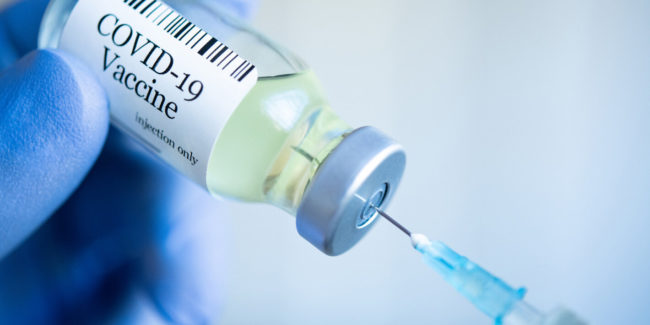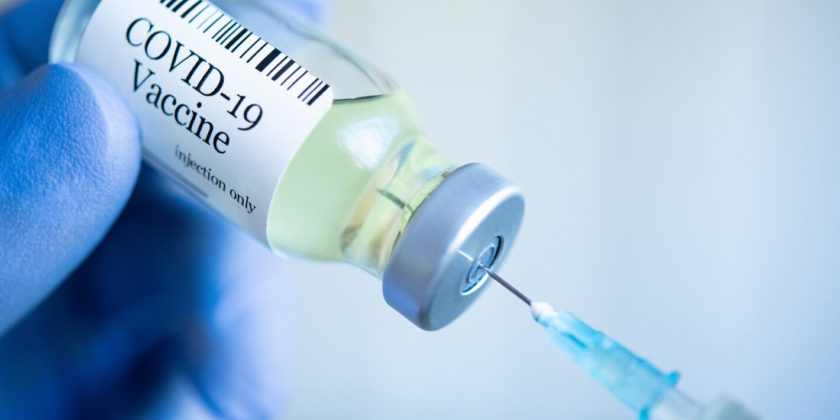
The short quick answer to this is – no, the vaccine does not completely prevent you from getting COVID.
What it will do is to prevent you from becoming seriously ill. The entire point of the vaccine is to prime your immune system to have an immune response to COVID-19.
One other key point to appreciate is this. Once you have received your second shot, don’t toss your mask and rush out into crowds. It takes about fourteen days for your system to build up the immune response.
Then … ?
Nope, you should still act with appropriate caution. Clean your hands frequently, wear a mask, and always always always follow heath care guidance.
NPR: A Mystery Under Study: How, Why And When COVID Vaccines Aren’t Fully Protective
On April 13, 2021, NPR published the above article. Their story starts out as follows …
Ginger Eatman thought she was safe after getting her second COVID-19 vaccination in February. But she kept wearing her mask, using hand sanitizer and wiping down the carts at the grocery store anyway. A few weeks later, she noticed a scratchy throat.
“By Wednesday morning, St. Patrick’s Day, I was sick. I had congestion — a lot of congestion — and some coughing,” says Eatman, 73, of Dallas, Ga.
Her doctor thought her symptoms might be allergies. But Eatman started feeling sicker. And then she suddenly lost her sense of smell. She even tried her strong perfume. Nothing.
So Eatman got tested for the coronavirus. It came back positive.
“I was shocked. I almost cried,” she says. “It was like: No, that can’t be.” …
It illustrates exactly what I opened with. Having the vaccine does not completely prevent you from getting COVID.
I’ve mentioned it at the start, so let me once again put your mind at rest. She was fine. Ten days later she made a full recovery. That is what having the vaccine does. It literally alters your immune system and preps it so that if you do get COVID then you have builtin protection that will immediately leap into action and fight against it.
What are the actual statistics?
There are about three different vaccines approved for use in the US.
- They are at least 94% effective at preventing severe disease and death (two weeks or more after the second shot)
- They are also roughly 80% effective at preventing infection
While not 100% perfect, it brings a considerable degree of protection. That is far better than not having the vaccine.
The NPR story underlines that point with this finish …
For her part, Eatman is still glad she got vaccinated. She recovered after about 10 days. But she has friends who weren’t nearly as lucky — friends who hadn’t gotten vaccinated.
“We’ve had people at our church — a couple of them,” Eatman says. In one case, “once she got COVID, it took her fast. And then another lady, just a little bit older than I am, wound up in the hospital, had the pneumonia, in ICU, out of ICU, back in ICU. And she went home to be with the Lord.”
What about Blood Clots?
In the US the J&J vaccine has been paused because six people our of seven million doses administered had a rare type of clot. That is quite literally one in a million.
If you have had the J&J vaccine then you most probably don’t need to worry.
“What does a pause mean? It really allows both the US Food and Drug Administration and CDC to further investigate these cases to try and understand some of the mechanisms of what it is, some more details about the history of the individuals that were involved,”
Dr. Anthony Fauci
It is perhaps also worth understanding that if you get COVID then that itself puts you at risk of not just severe respiratory problems but also blood clots. In other words, if you received the J&J vaccine it has greatly reduced your risk of blood clots and has not actually increased it.
Everything we do comes with risk. To be able to make sensible decisions we need to place such risks in context.
The J&J vaccine appears to have a risk of a 1 in 1,000,000 chance of a blood clot. Note that it is only the J&J one, neither of the other two have this risk.
In the context COVID itself having a facility rate of roughly 1%, that means that for every 100 people that get COVID, one will die.
Given a choice between having a vaccine or not having a vaccine, your path of least risk is rather obvious. When you get a chance to receive a vaccine then I highly recommend that you grasp it. The alternative, refusing it, will greatly increase your risks.
Side Note: Yes, I’ve had my first shot.
